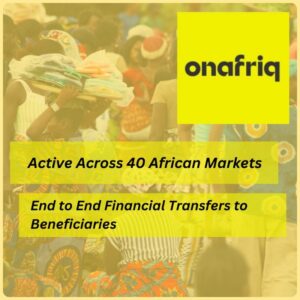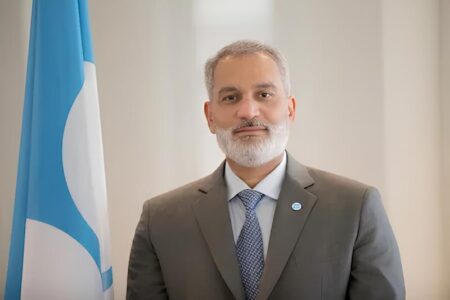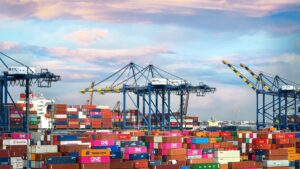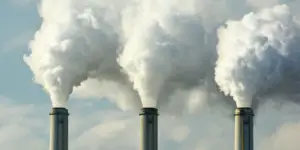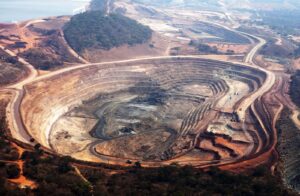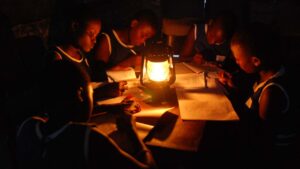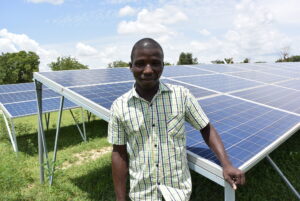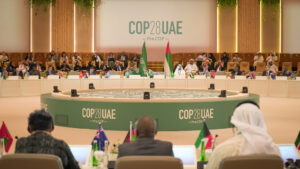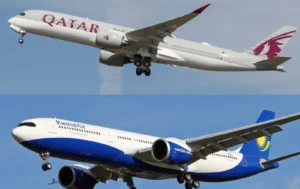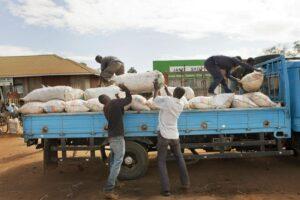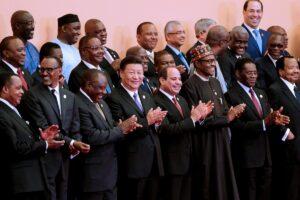- Africa’s new dawn: the rising role of digital and AI in agriculture
- Can Dangote Refinery Transform Africa Energy Ambition
- Gallup Survey: 80 per cent of Kenyan Workers Are Disengaged and Seek New Opportunities
- Madagascar Man Freed from 5KG Tumor After 15-Year Struggle
- How women in Africa are perceived and treated
- Sugar consumption in Kenya to Increase to 1.23 Million Tonnes
- Can Somalia and Turkey Oil deal Bring Change in Somaliland
- Remittances to Kenya dropped to $371.6 million in June, marking a six month low
Opinion
- Existing scientific research in Africa’s renewable energy transition often overlooks certain dispatchable technologies that could enhance grid flexibility.
- Studies primarily focus on zero-carbon dispatchable technologies like concentrated solar power and geothermal, despite their limitations in efficiency, reliability, and cost.
- Balancing engine power plants, which are globally recognized for their flexibility, reliability, and cost-effectiveness, are notably absent in these analyses, despite their potential to run on clean fuels in the future.
It is no longer disputed that solar and wind power will be the foundation of Africa’s future energy systems. They are perfectly suited to the continent’s unique conditions and are already the most cost-competitive power option in almost all cases. This consensus spans academia, businesses, and policymakers who all recognize the potential of renewable energy to meet Africa’s growing needs sustainably.
They also readily acknowledge the intermittent nature of renewables, and the associated need for flexible power capacity within the …
- Creating a “greater purpose” is essential to Onafriq’s corporate culture, driving its growth and unifying Africa’s digital payments.
- Onafriq’s digital payments network connects over 1,300 cross-border payment corridors and facilitates financial access for over 500 million mobile wallets and 200 million bank accounts in 40 markets in Africa.
- Overall, Onafriq empowers small businesses and women entrepreneurs by providing access to digital payment options, asset-based financing services, and additional income opportunities.
Being deliberate about creating a “greater purpose” is essential to building an authentic corporate culture, engaging stakeholders, and navigating the evolving landscape of corporate philanthropy. This is the philosophy behind Africa’s largest digital payments network, Onafriq’s, extensive growth and vision to unify the continent’s digital payments landscape according to its General Counsel and Chief Risk Officer Funmi Dele-Giwa.
Dele-Giwa recently shared insights into the organisation’s unique position at the intersection of social impact and commercial ambition at the Women in …
- The momentum of financial inclusion programmes is progressively strengthened as financial institutions, businesses and consumers embrace cashless convenience and digital payments that are secure and seamless.
- Currently, Rwanda is a prime market for digital payments, with a young population of which 69 per cent is below the age of 30, and the second-highest population density in Africa
The momentum of financial inclusion programmes is progressively strengthened as financial institutions, businesses and consumers embrace cashless convenience and digital payments that are secure and seamless. Technology development broadens the scope of delivery of financial services, and the advantages of digital payments manifest in providing easy access to the masses, reducing travel and queuing times, quicker transactions and seamless money movements that are cashless.
Currently, Rwanda is a prime market for digital payments, with a young population of which 69 per cent is below the age of 30, and the second-highest population density …
- Africa’s natural gas sector stands poised to prepare the entire continent for eventual decarbonization, as do many of the companies operating here.
- Energy companies are describing policies that call for pursuing energy transition measures for tomorrow while providing the natural gas to power the world today.
- Africa continues to hold immense natural gas potential and is positioned to not only increase its outputs but also capitalize on the underserved LNG market and meet Europe’s ongoing demand.
The recently signed liquefied natural gas (LNG) development project in South Africa’s Mpumalanga province is a promising step on the long road to Africa’s just energy transition.
The project, being jointly developed by Kinetic Energy of Australia and the Industrial Corporation of South Africa (IDC), a national development finance institution, will capitalize on Kinetic Energy’s recent 3.1 billion cubic feet natural gas discovery in Amersfoort, Mpumalanga. The project is expected to produce 50 megawatts …
- The final agreement of the Dubai climate summit mentions for the first time a transition “away from fossil fuels.”
- This is certainly a step on the right path, but that remains far too insufficient to respond to the urgency and severity of the climate crisis, particularly for vulnerable countries.
- For millions of Africans, the climate crisis affects every aspect of life, from food and housing to access to clean water and clean energy.
World leaders have finally reached an agreement that the world must abandon fossil fuels to prevent catastrophic climate change, following 30 years of intense and painful negotiations.
This concession was achieved in response to the outcry caused by the previous draft, which did not explicitly acknowledge the necessity of transitioning away from fossil fuels.
Although some hail the Global Stocktake as ‘historic,’ it does not clearly signal an “exit” from oil, gas, and coal, as the …
- Africa holds more than half of the world’s reserves of cobalt, 46% of its manganese, and 21% of its graphite, all used in EV batteries, and about a quarter of its bauxite, which is required for solar photovoltaic technologies.
- For decades, Africa has allowed her raw materials, including oil and natural gas, to be exported raw, without a chance to benefit from the finished product.
- As a result, we’ve missed out on the job creation, industrialization, and economic diversification.
To meet their green agendas, the European Union, US, and China are engaged in the modern-day equivalent of a gold rush. This time, though, fortune seekers aren’t panning for shiny nuggets in Canada, America, or Australia. Instead, all eyes are on the critical minerals of Africa—cobalt, graphite, lithium, and others—raw materials essential to the production of clean technology, including electric vehicles (EV).
To say that Africa is generously endowed in this …
- African countries have every right to set the timing for their energy transition.
- Africa still needs time–time that the Western world has already had and, frankly continues to milk–to resolve energy poverty and industrialize.
- The continent’s oil and gas production, when managed strategically, provides a pathway for economic growth, energy transition and security.
About a year ago, before COP27 began in Egypt, Fiona Harvey and Matthew Taylor wrote in an opinion piece for The Guardian that it was time for gas exploration in Africa to stop.
“Africa must embrace renewable energy, and forgo exploration of its potentially lucrative gas deposits to stave off climate disaster and bring access to clean energy to the hundreds of millions who lack it, leading experts on the continent have said,” they wrote.
This is hardly new. For several years now, wealthy nations and environmental organizations have been strong-arming African countries to leave their petroleum …
- Asking developing nations to ignore natural gas in the energy transition plan is essentially requesting that they ignore half their power capacity.
- Currently, far too many people in Africa can’t buy milk from a refrigerated grocery aisle, do schoolwork after sunset, or get an X-ray at their local hospital.
- Many Western states supplement their grids with wind or solar but ultimately rely on natural gas, oil, or coal.
Western leaders often urge African nations to make a rapid transition from fossil fuels to renewable energy sources. They seem to think that African nations can switch to renewable power sources fairly easily if a good energy infrastructure is already in place.
But this is not the case in Africa, where roughly half of the population lacks access to electricity. Far too many of our people can’t buy milk from a refrigerated grocery aisle, do schoolwork after sunset, or get an X-ray …
- The 2009 Copenhagen Accord was not a binding promise but set up a durable framework for future talks.
- One of these solutions is for African countries to use crude oil, natural gas, and other hydrocarbons to develop their resources and use the revenues to finance energy transition.
- In the process, they should also seek to meet several other complementary goals, such as building gas-fired plants that can provide cleaner power than existing coal.
From an African perspective, one of the most important things to come out of COP15, the 2009 United Nations Climate Change Conference in Copenhagen, was the formal recognition of the fact that lower-income countries were not in a position to bear as much of the cost of the energy transition as their higher-income counterparts.
That recognition was spelt out in the section of the Copenhagen Accord that included a pledge from the world’s highly developed states to …






